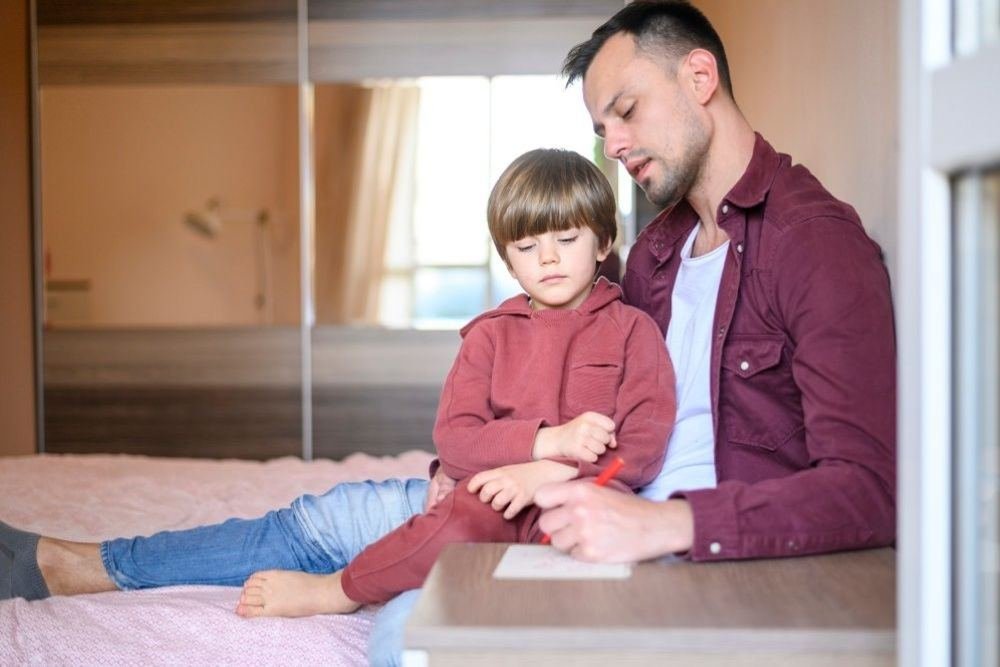
When parents can’t agree on a child custody arrangement, the decision falls to a family court judge. In every single one of these cases, the judge’s guiding principle is a legal standard known as “the best interest of the child.” This is not a vague concept; it is a legally defined framework that puts the child’s well-being above all other considerations.
Understanding what this phrase truly means is the first step toward securing a positive outcome for your child. It is not about a parent’s rights or desires, but about what will provide the child with the most stable, supportive, and loving environment.
Breaking Down the Factors
Judges use a comprehensive list of factors, which can vary slightly by state, to determine what is in the child’s best interest. These factors provide a roadmap for parents and their attorneys to build a strong, evidence-based case.
- The Child’s Wishes: The court may consider the child’s preference, but it is not the sole deciding factor. A judge will weigh the child’s age, maturity, and reasoning behind their preference. A 16-year-old’s well-reasoned request will carry more weight than a 6-year-old’s simple desire to be with one parent.
- The Emotional Ties & Relationship: The court will evaluate the quality of the bond between the child and each parent. This includes which parent has been the primary caregiver and the level of affection and support each parent has provided.
- The Parent’s Physical & Mental Health: The court will consider the physical and mental health of both parents. This is only a factor if a parent’s health has a direct and significant impact on their ability to provide a safe and stable environment for the child.
- Each Parent’s Ability to Provide for the Child: This includes the ability to provide for the child’s basic needs (food, clothing, shelter) as well as their educational and emotional needs. The court will also consider the stability of each parent’s home and their ability to provide a consistent routine.
- Each Parent’s Willingness to Co-Parent: A judge will look favorably upon the parent who is more likely to facilitate a loving and healthy relationship between the child and the other parent. A parent who tries to “alienate” the child from the other parent will likely be viewed very negatively by the court.
- History of Domestic Violence or Substance Abuse: Any history of domestic violence, substance abuse, or child abuse or neglect is a major red flag for the court and can significantly impact custody and visitation decisions.
Sole vs. Joint Custody: The Modern Approach
Decades ago, one parent (typically the mother) was often awarded sole physical custody. Today, the legal system has shifted, and most states presume that joint custody is in the child’s best interest. Joint custody means both parents share in the decision-making (joint legal custody) and time with the child (joint physical custody).
A judge will only award sole custody to one parent if they can prove that joint custody would not be in the child’s best interest, often due to a parent’s history of abuse, inability to co-parent, or lack of involvement.
Why Your Conduct Matters in a Custody Case
Every step you take and every word you say can become part of the court’s consideration. Judges look at:
- Your Communication: How you communicate with your ex-spouse (e.g., respectful, hostile, or non-existent).
- Your Actions: Your ability to follow a schedule, take your child to appointments, and be involved in their school and activities.
- Your Flexibility: Your willingness to be flexible and compromise for the sake of the child.
The Role of an Attorney
Navigating the complexities of a child custody case is not something you should do alone. A skilled family law attorney will:
- Build Your Case: They will help you gather the necessary evidence, interview witnesses, and present a compelling argument based on the “best interest of the child” factors.
- Negotiate: An attorney can negotiate with the other party’s counsel to reach a fair settlement that avoids the expense and stress of a trial.
- Advocate in Court: If the case goes to trial, your attorney will be your voice, presenting your case and fighting for the outcome that is best for your child.
The “best interest of the child” is more than just a legal term; it is the most important standard in family law. Understanding it is the first step toward building a successful custody case and securing a bright future for your child. Navigating a child custody case is a complex journey, and the stakes could not be higher. Don’t leave your child’s future to chance. At LforLaw, we are dedicated to helping parents build a strong case based on the “best interest of the child” standard. Contact us today for a compassionate consultation to discuss your situation and get the guidance you need.





